Then and Now: From Luchow’s German Restaurant to NYU Dorm
For those of us who came to the city within the past decade, it’s hard to imagine East 14th Street without its stretch of bulky NYU dorms, big-box supermarkets, and mini-chain restaurants. But of course this wasn’t always what the area looked like. In the late 19th century, the area centered around Irving Place, was full of entertainment venues like the Academy of Music, the city’s opera house, Steinway Hall, Tammany Hall, and the City Theatre movie house. And at the heart of it all was a restaurant that catered to both the theater crowd and the German population of the East Village–Luchow’s.
Luchow’s was established in 1882 at 110 East 14th Street at Irving Place when German immigrant August Lüchow purchased the café/beer garden where he worked as a bartender and waiter. It remained in operation for a full century, becoming an unofficial neighborhood and city landmark, until it was replaced by NYU’s University Hall dormitory.
In 1855, New York had the third largest German-speaking population in the world, outside of Vienna and Berlin, and the majority of these immigrants settled in what is today the heart of the East Village, then known as “Little Germany” or Kleindeutschland. When August Lüchow opened his famed restaurant in 1882, the neighborhood was still a bustling hub of German immigrants. It wasn’t until the horrific General Slocum disaster in 1904, a steamship crash that killed 1,000 members of the community, that the area lost its German residents. But by this time, Luchow’s had cemented itself as a neighborhood staple known as “the capital of 14th Street.”
August Lüchow bought the restaurant using a $1,500 loan from fellow German immigrant and piano magnate William Steinway, whose concert hall and showroom, Steinway Hall, was right across the street. At the time, 14th Street on either side of Union Square was part of the most prestigious part of the city. The space was originally just an eighth of the size it would become, reaching through the entire block to 13th Street. Steinway and his European friends, most of whom were touring or transplanted musicians, were regulars at Luchow’s. In fact, Steinway was known as “the patron saint of Luchow’s.”
Luchow’s was the place to see and be seen for the music, theater, and literary crowd; even Oscar Hammerstein dined there. Victor Herbert, a world-famous composer, cellist, and conductor, brought an eight-piece orchestra from Vienna to perform at Luchow’s, starting a tradition that would last until the restaurant closed. Herbert also founded the American Society of Composers, Authors and Publishers (ASCAP) at a table in the restaurant in 1914. Countless other song titles made reference to the establishment, and Gus Kahn wrote the lyrics for “Yes, Sir, That’s My Baby” on a tablecloth at Luchow’s. Other big-name guests included John Barrymore, Arturo Caruso, Sigmund Romberg, Lillian Russell, O. Henry, Theodore Dreiser, Thomas Wolfe, and Edgar Lee Masters.
But a true German establishment wouldn’t be complete without a good selection of beer, and it was this that allowed Luchow’s to succeed financially. In 1885, Luchow’s became the American agent for Würzburger Beer, followed by Pilsner. The outdoor beer garden was located behind the restaurant, to the east of the newly purchased lot that extended the site to 13th Street, where stables served for city-wide beer delivery. In 1902, the beer garden, stables, and another area on the west side of 13th Street were converted into the Heidelberg Room, a dark-paneled room with ornate décor, 30-foot ceilings, frosted skylights, and etched stained glass. In 1906, after purchasing the adjacent Huber Museum at 106 East 14th Street, Luchow’s reached its final layout with the addition of the Hunting and Nibelungen rooms. It was the Heidelberg Room, though, that everyone remembered from Luchow’s. It was filled with taxidermied animal heads, massive ship models, famous paintings, and colorful beer steins (or mugs).
After August Lüchow passed away in 1923, his nephew-in-law Victor Eckstein took over. Interestingly, when Prohibition was repealed in 1933, Luchow’s was the first restaurant in the city to get its liquor license. The restaurant was popular for its annual week-long festivals, like the Venison Festival, Bock Beer Festival, and a goose festival, as well as its nightly Christmas tree lighting around the holidays.
Beginning in 1950, Luchow’s went through several owners, and by the 1980’s, the Union Square area was rundown and drastically changing. The Academy of Music and Tammany Hall had been torn down and replaced by the massive Con Ed building, and the movie theater next door was knocked down to make way for a rock music venue, which later became the famous Palladium nightclub (now also an NYU dorm). In an effort to reinvent itself, Luchow’s moved to the Theater District, where it didn’t find success. There were a few stints at other locations, including one at Penn Station of all places, but ultimately the Luchow’s name died.
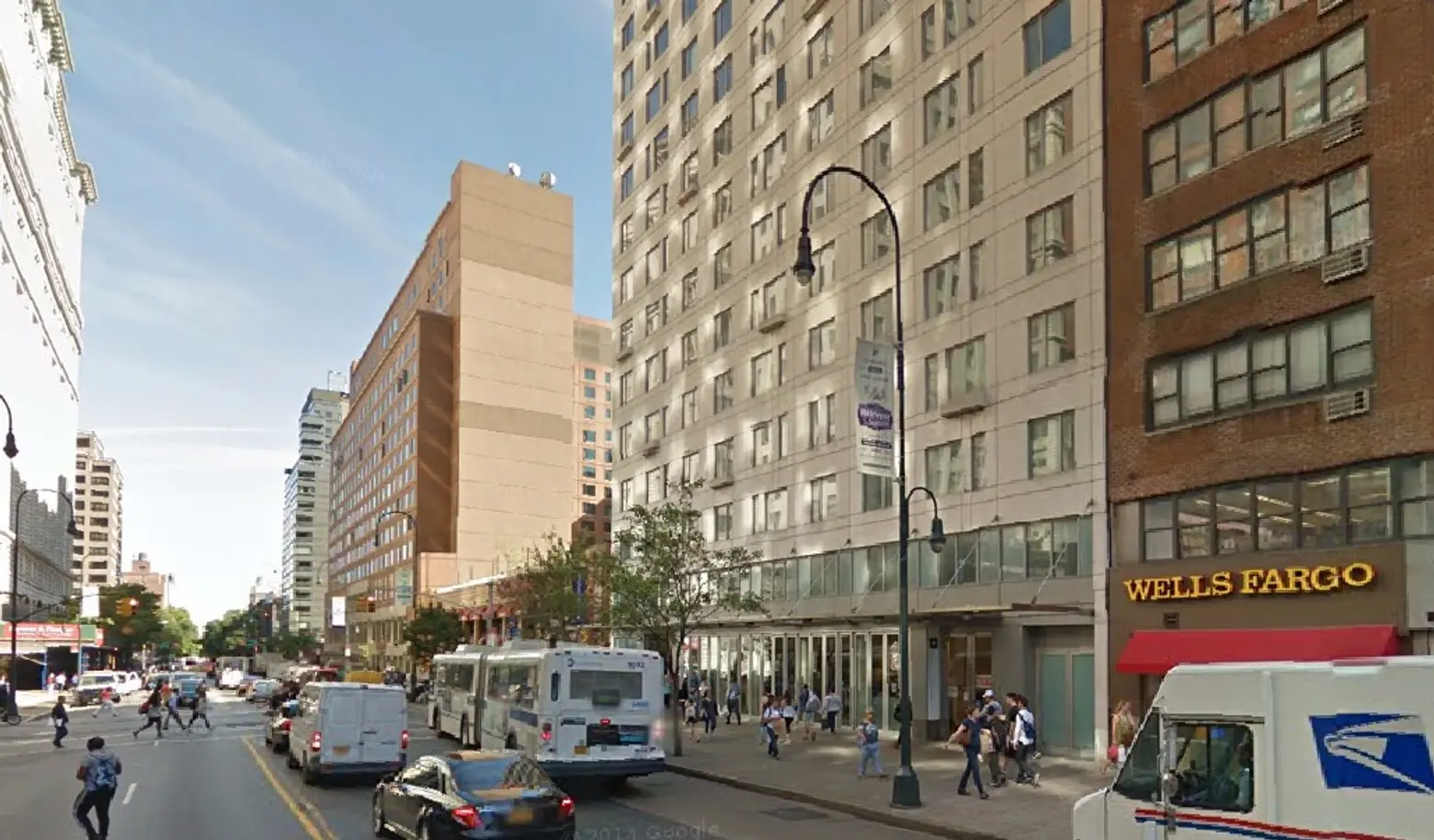 The stretch of 14th Street today; University Hall is the large white building
The stretch of 14th Street today; University Hall is the large white building
The building held on a bit longer, operating briefly as the Palace restaurant and disco, as well as a gay bar, but in 1992 a fire, which some considered suspicious, sealed its fate, and in 1995 it was demolished entirely, despite numerous preservation campaigns to landmark the Victorian building. NYU bought the site, where they said they planned to revive Luchow’s with a ground-floor gay 90’s-themed restaurant of the same name. These plans clearly never panned out, and instead there rose a 617-bed dorm called University Hall with some basic retail on the street level.
Have memories of Luchow’s? Let us know in the comments!
[Related: Kleindeutschland: The History of the East Village’s Little Germany]
Explore NYC Virtually
Leave a reply
Your email address will not be published.




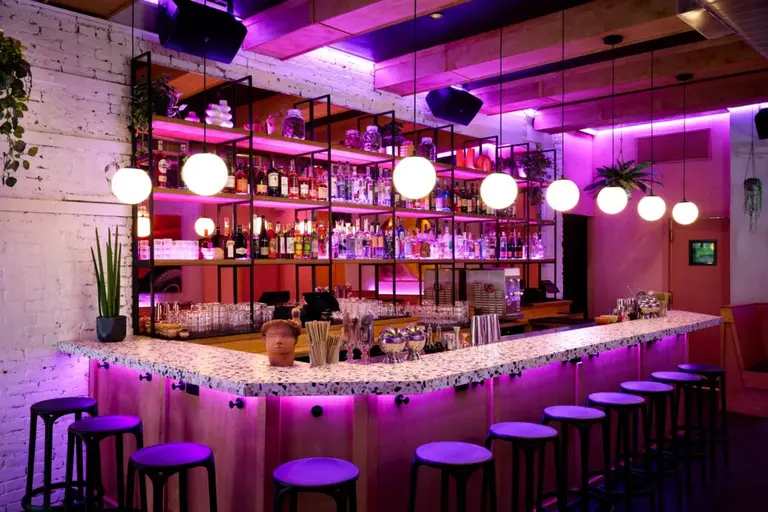
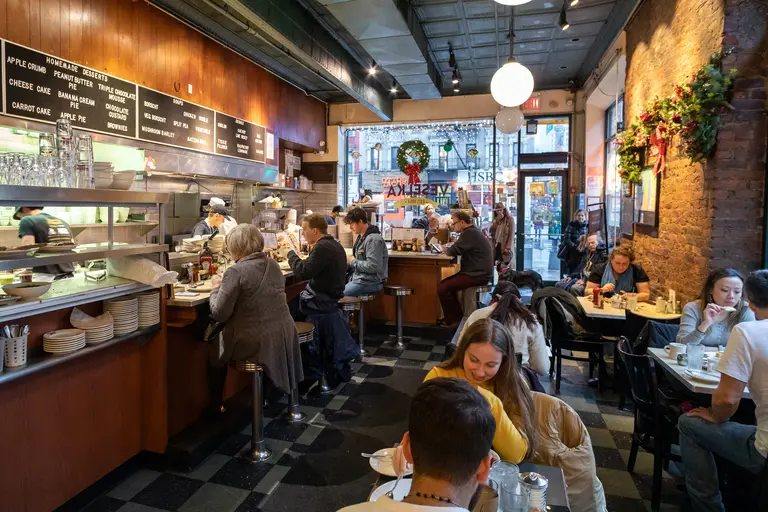





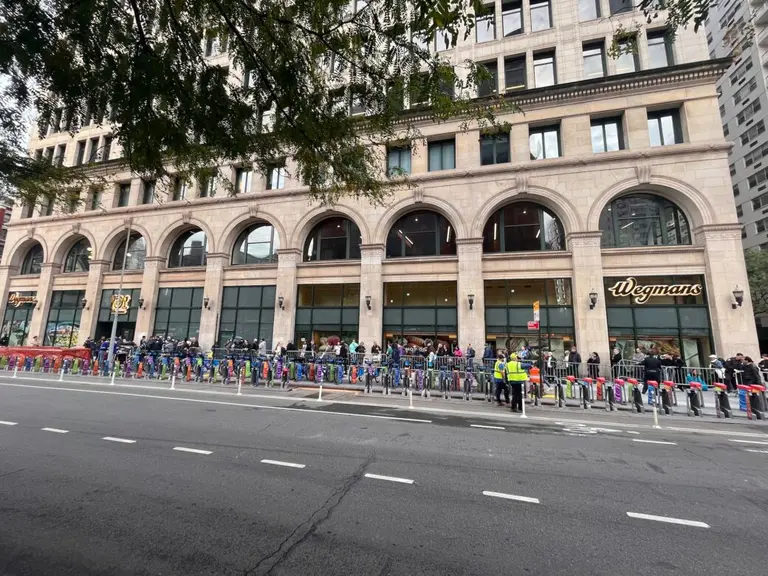
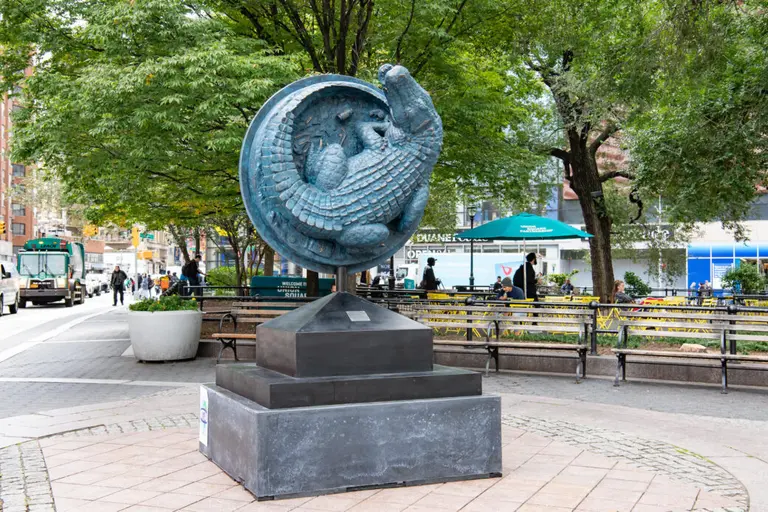
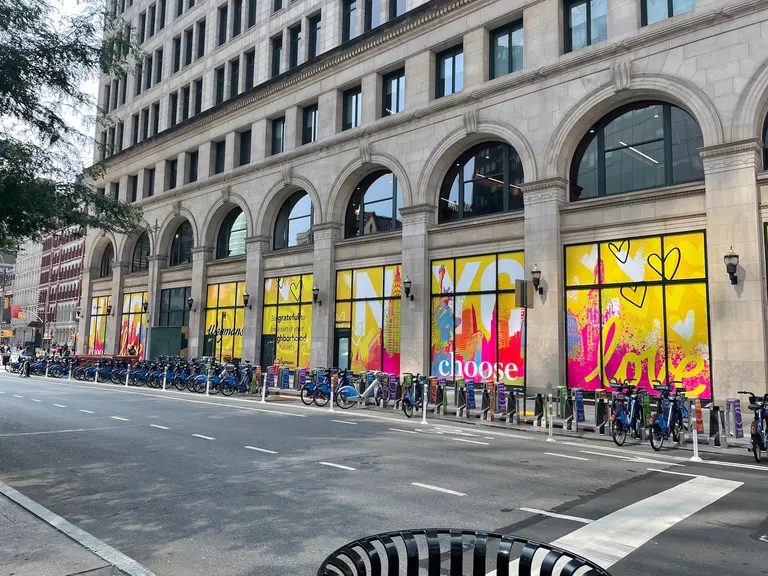

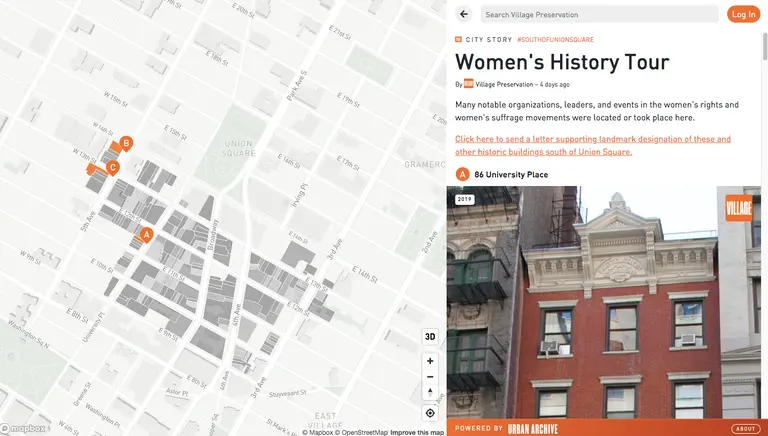
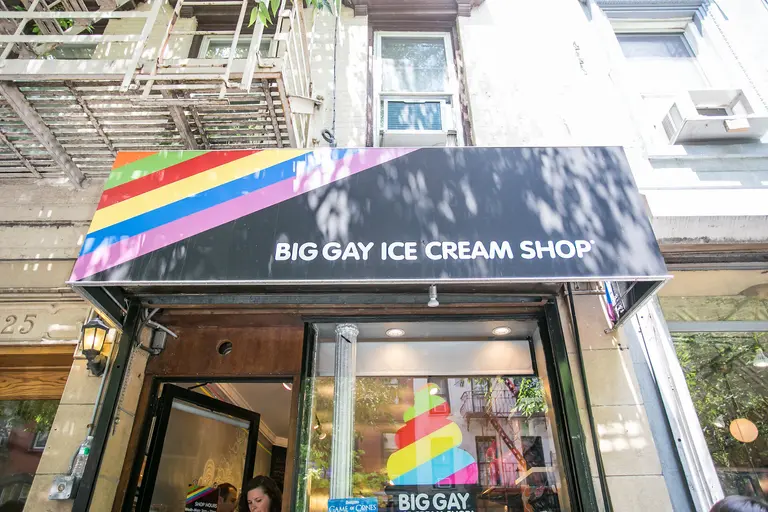












There is a Luchow’s Cookbook available. Check ALIBRIS.COM or AMAZON.COM.
I loved Lüchow’s; used to go there as a teenager to speak some German, and, consequently, was served beer! Good food, good bier, wonderful ambiance…..all good things come to an end. Schade!
Fuck NYU. They ruined NY.
For years my friend Tony Amarante and I would take the train from Brooklyn Supreme Court where we both worked and would go to the one down a few steps in the theater district for lunch. After they moved back to 14th Street we often went there for the Christmas decorations and the Christmas Tree with our wife’s. But still the best times were the lunches at both locations because as Tony would say “we were on the dime”.